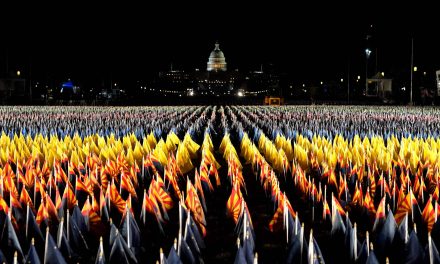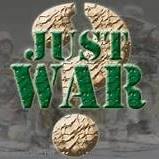Relative to other years, it’s been a slower blogging year this year than in the past. At the end of 2012, I suggested it had been the Year of Catholic Moral Theology. In 2013, we had our most-read post ever (Paul Gondreau’s reflections on Pope Francis’ Easter embrace of their son) alongside several other good and controversial posts, documented by David Cloutier here.
That said, there has been no shortage of discussion this year and we are grateful, as always, for our bloggers, readers and conversation partners. Below are a few of the year’s highlights, plus my thoughts on what conversations we might expect to see more drawn out in the coming year.
Christmas blessings to you and yours, and prayers for a happy, healthy 2015! 
2014 in Review: Top 10 Most-Read Posts from 2014
1. Statement of Catholic Theologians on Racial Justice – Our most-read post this year, written by former CMT-er Tobias Winwright, this statement aims to be one way of NOT being silent in the face of racial injustice. On my view, this statement is distinctive not only because of its focus and strong call against racism, but also for its focus on Christian practices (like fasting) that call us theologians to live and pray and reflect on our sins in particular ways. The statement has also been noted for the broad array of theologians across the spectrum of theological divides who have signed.
May 2015 be a year of good reflection, fasting, prayer and action.
2. The New Archbishop of Chicago is No Moderate – This September post of Charles Camosy’s takes on the left-right dichotomy that continues to dominate Catholic discussion, at least in the blogosphere, this time in relation to Archbishop Cupich of Chicago. Camosy wonders if Crux’s (and Twitter’s) congratulatory “He’s a moderate” statement really means to them that he’s a relativist, fuzzy, and lukewarm. But – noting Archbishop Cupich’s calls to be with those on the margins in a recent speech against libertarianism, along with definitive speeches against abortion – he suggests that Archbishop Cupich is “magenta”. Commenter Gerald Schlabach raises an important question about the meaning of “moderate” among lay Catholics.
3. Why I am Leaving My Other Full Time Job – Beth Haile raised blog hackles in her February musings about leaving academia behind to be a stay-at-home mom. Haile observed that her decision was not a manifesto against work-out-of-the-home motherhood, nor a statement about “what all mothers should do” nor a vective against an unsupportive institution (to the contrary, she found her institution very supportive). Rather, it was a process of discernment and it was a following of her vocation.
What I discovered during the summer is that I was in danger of failing my family, not through neglect or irresponsibility, but by simply trying to do too much. What made the decision difficult is that all the things I was doing–teaching, mentoring students, scholarship, serving my institution, and everything associated with parenting–all of these were good things. But it is possible to have too many good things.
This post led to a much broader conversation, with responses from the WIT blog, including Is Fatherhood a Full-Time Job? and Work-Life Balance and Parenting Styles as well as Holly Taylor Coolman’s guest post Unmuting Working Women.
4. “There Is No Them, Only Us”: Learning from U2’s Invisible – In February, Meghan Clark commented on U2’s new single, launched at the Super Bowl. She reflects, by several turns, on what it means to say, believe and act on the line “there is no them, only us. She suggests:
This song challenges us to look into our own hearts – why do we not see our neighbors? Why do we not see the persons suffering? Beyond that, the indictment ‘I am more than you let me be” is not an individual one, it is a collective judgment upon the global power structure which values some and throws away others.
5. St. Augustine, Catholics, and Mental Illness – Dana Dillon wrote this May post in honor of Mental Health Awareness Month. She reflects on Augustine’s words, on the idea that for Catholics, the mentally ill most definitely count among the “least of these”, and the mixed implications of a popular Catholic sentiment drawn from Saint Ignatius of Loyola: “work like everything depends on you and pray like everything depends on God.” Sometimes that last statement has been taken to mean: if you just work hard enough, you’ll get better. But what if you don’t? It’s not because of your parents’ fault, or yours – but it is correctly named a tragedy. As Augustine says in the quote Dillon offers:
Crazy people say and do many incongruous things, things for the most part alien to their intentions and their characters, certainly contrary to their good intentions and characters; and when we think about their words and actions, or see them with our eyes, we can scarcely — or possibly we cannot at all — restrain our tears, if we consider their situation as it deserves to be considered.
Note: I didn’t realize till after publication that this post was actually originally published in 2013, but remained a favorite in 2014. I had tried to keep this list focused on new-to-2014 posts, as several of our older posts actually routinely make the top 10 list. I happened to miss this one. Ah well. I’m keeping it in this list for the sake of continuity, and also – it’s just a good post!
6. Does Technology Isolate Us? – In January, Jason King wondered whether we feel isolation because of our technology or because our culture privileges and approves of “hindering social contact.” He argues that it is the latter that is the case and that we need to do serious reflection on how to enable technologies that facilitate face-to-face contact, rather than technologies that reinforce what our culture demands. Jason’s January post led to further reflections in March, as well.
7. Paul Griffiths’ CTSA Plenary Speech – Within Catholic theology’s guild, Paul Griffiths’ CTSA speech was probably the most memorable and most discussed in 2014. The speech was much discussed even prior to having the full text, so we are grateful to Griffiths for enabling us to share the text. It’s risky to sum up a 30-page speech, but this might at least offer some enticement for reading the speech and commentary as a whole: Griffiths says that doing theology is “serious thought and writing about the Lord which is responsive to the depositum fidei“. It also involves “doctrinal discovery” and in that context we theologians can then argue what theology does and what it is for. These are not the most interesting arguments to be had, however: there needs to be room for speculative and interpretive theology related to doctrinal discovery. Griffiths offered the mission statements of CTSA and the Academy of Catholic Theology as opposing examples, which was where many commenters devoted some time.
Griffiths offered three suggestions to the CTSA: 1) more “serious thought and writing about the Lord”; 2) encouragement for active disagreements at the interpretive and speculative levels; 3) Reflect, in practice, the range of thought among Catholic theologians.
Commonweal (several times), Daily Theology, the National Catholic Reporter, and our own blog, among many others were among places in the blogosphere that added to the conversation.
8. The Morality of the Cry Room: In Defense of the Rights of the Diaper and Bib Crowd – Andrew Kim wrote this January post on cry rooms, wondering why the youngest among us must be (in many parishes) shunted off to special rooms and dis-enabled to participate in mass (surely the source and summit of our Christian life ;-)?) One of Kim’s most memorable quotes included this one:
But if one must have some special room for a select group to be singled out as different from the rest, and if one’s church already has a cry-room in its design, then perhaps one could just change the name of it to the judgment room.
9. College Students Are Not Doing What You Think They Are Doing – In an end-of-academic-year reflection, Jason King muses on our collective snap judgements about college students, particularly on our assumptions that they drink all the time, hook up all the time, and don’t take their studies seriously. In the wake of a summer and fall that has been concerned with higher education, sexual assault and drinking culture, we might be wondering what King might say now – and he’s written on that too, here. That said, King rightly emphasizes what many college students’ experience is: high debt, lots of school work, lots of work to pay for school, and concerns and questions about faith.
10. After Hobby Lobby: Persistent Confusion about the Nature of Religious Belief – In July, Charles Camosy reflected on the conversation that arose after the Supreme Court’s decision about Hobby Lobby and contraceptive exemptions. Against particularly bigoted statements (like “Should Catholics be present on the Supreme Court?”) but also statements like Justice Ruth Bader Ginsburg’s dissenting comment that ‘Religious organizations exist to foster the interests of persons subscribing to the same religious faith’, Camosy notes that “A moment’s reflection on institutions like a Catholic-run women’s shelter or a Jewish-run hospital demonstrates that this claim is not only mistaken, but just plain odd.”
He hails the Hobby Lobby decision as providing significant “breathing room” for broadening our understanding of religious freedom, particularly in an era that hails a secular/religious binary that sees religion as solely linked to particular kinds of religious institutions (“religious” as understood and dictated, moreover, by courts and political systems). For Catholics and many others whose faith is not limited to some circumscribed “private sphere”, the court’s decision ought to be welcome news.
NB: These were our top ten most-read posts of 2014. There were numerous other important posts, including the lectionary commentaries that contributors like Kathryn Getek Soltis and Christopher Vogt write each week; in the eleventh most-read spot, Emily Reimer-Barry’s February 2014 discussion of rape culture and the Super Bowl was prescient of the NFL conversations happening this year; Matt Shadle’s commentary on the Extraordinary Synod on the Family; David Cloutier’s observations on the Libertarian Default; Nichole Flores’s epitaph on activist James Foley, who was beheaded this year at the hands of ISIS; Patrick Clark’s observations on the meaning of the word “terror“; Thomas Bushlack’s conversations about violence at Ferguson and Gaza; Julie Hanlon Rubio’s powerful piece Honoring Our Mothers in Theology; and perhaps even my as-yet-unfinished series on theologian converts, which begins here.
Looking Ahead to 2015…
It’s impossible to make predictions, and I won’t even try – but I will highlight some questions that I expect to remain on the front burner this coming year. It may well be that my list merely looks like part of the skeleton of some of the Compendium of Social Doctrine of the Church, or “what you’d expect” from a moral theologian. I’m okay with that. 2014 featured a host of important conversations – so will 2015! Keep coming back for our lectionary reflections at the least!
What it means to “Choose” – and what it means to seek life with our Choosing God – I hope that one of the conversations we’ll have this year relates to questions of choice. Many of my colleagues have discussed, in posts linked above, the ways that our particular North American ideas (and ideologies) about choices we make are grounded in political liberalism and particular views of capitalism, and what I see as a rising development especially of a social libertarianism that spans political divides. I think we have made an idol of choice, and we continue to do so. That’s not to say that we don’t have choices to make – but it is to raise suspicions about how the idea of having “choices” functions in our discourse – including all the “moral issues” we think we have to make choices about. This ventures, of course, toward questions of free will and predestination. In that context, I’d love for us to think more about the God whose life we seek to share – the God who chooses us. Important theological topics, all.
Racism – I expect and hope that racism and the questions that have been once again pushed to the limelight in the last half of 2014 will remain part of our conversation this year. In particular, I hope we explore not just “systemic sin” related to racism, but also personal sin. I am sure that, through my own fault, I have acted in racist ways, though I may not always or mostly have seen those ways. I am hoping that further conversation and reflection helps all of us name sins, repent and seek justice.
Abortion – At the least, the pundits are asking if 2015 will be the year the Supreme Court addresses abortion again. The questions being raised seem to be same ol’ and maybe therefore requiring a SCOTUS judgement: reproductive rights of the woman OR rights of the unborn; sonograms as promoting health or destroying privacy. But at least one person wonders whether there might, after all, be at least some places where “pro-choice” and “pro-life” hold some common ground, from which we might be able to move to a new – uh – impasse? In any case, cmt.com has, as usual, particular concern for the “least among us”, including the unborn.
Economic Injustices – One of the things Pope Francis has done is to convict me when it comes to economics. I can’t be a middle class American without confronting what that means and how much wealth I really have – even as American culture promotes luxury to such an extent that it is easy to feel poor. David Cloutier has written a manuscript on luxury that I hope will be published soon – and has sometimes commented on that subject here -, and David Matzko McCarthy’s already-published book on Christianity for the Middle Class provide good food for thought.
Sexual assault on campus – The Rolling Stone article about UVa and sexual assault – even with the debunked versions that are now getting a second (third?) look from the Columbia Journalism School – should raise some soul-searching for those of us who work on college campuses. Sexual assault happens; it happens in a culture that fosters silence; and the question of the extent to which college judicial systems end up adjudicating rape cases should be one that is a central focus.
The Ordinary Synod of the Bishops – I expect that many of my colleagues here at cmt.com, including me, have been asked to comment or make presentations on last fall’s extraordinary synod on the family. In 2015, we have an opportunity to reflect on the synod’s writings and see where they will lead… The Lineamenta is here….
Join in the conversation about 2014 and 2015 yourself! What have you noted in the past year, and what do you wonder about for the coming year?





